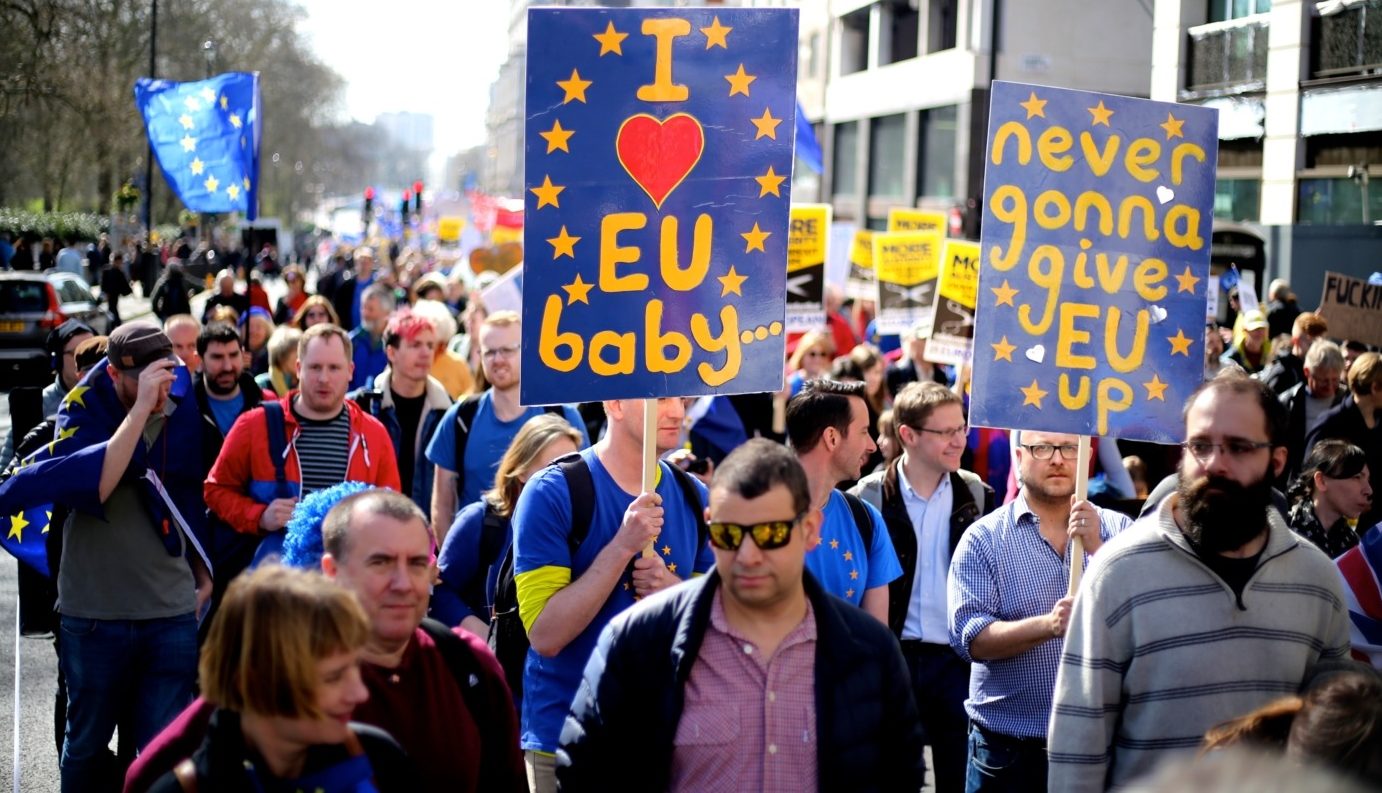The true motives behind the People’s Vote campaign are clear
From the agonising Brexit negotiations, a recent and rather ambitious resistance movement emerged from the rubble. The People’s Vote campaign, composed of students, businesses and politicians, pulled the drastic failings of May’s negotiations into the spotlight. Student-led groups, Our Future Our Choice (OFOC) and For our Future’s Sake (FFS), have been tirelessly promoting another referendum on the final Brexit deal. OFOC established their position on their website with a standalone sentence, “We believe there is no good Brexit deal for young people”.
While still in early stages, they’re eager to showcase their passion for democracy by requesting another vote. They were inspired by small signs of adjustment in the polls and an overarching desire to swiftly capitalise on the state of current public opinion, despite its daily oscillations. An admirable strand of optimism runs through their campaign: despite only five months before the tide comes in to wash away any prospect of another vote, they continue their uphill battle for what they believe in.
The political class have yet again left us disappointed. But can we blame them?
Yet their ulterior motive of a People’s Vote is somewhat transparent: the reversal of the outcome from 2016. We see that instead of backing a constructive exit strategy, which would both honour the last result and quench mutual fears of a bumpy departure, they have instead spent two years clinging to roadblocks at every opportunity and searching for possible methods of throwing the old result out of the back door. And crucially, they have defined Brexit based on the mess made of its initiation.
It’s been dictated since 2016 that everything has finally become clear. That we now know how we trade with the EU, how it functions economically and wrongly, that the consequences of leaving will be severe however they play out – so we should all think again before being so bold. The harsh irony is that they still omit the relevant issues spawned from the axis of politics, and the long history of subtle deception through Europe whose input was crucial to the result. Reasonable debate to settle the European question must wait until we end their delusion that the institution is nothing more than one large trading bloc.
Bridging the vacuum between public knowledge and the reality of how the EU functions and impacts the UK is impossible
Despite their overt narrative, bridging the vacuum between public knowledge and the reality of how the EU functions and impacts the UK is impossible. The further one crawls into a rabbit hole of treaties, trade agreements and international politics, the more tunnels exponentially appear. The dispute could never have and will never be sensibly resolved via a referendum. Advocates for a second People’s Vote are counting on the fact that the public will not be reliably informed on the complexities of our relationship with the EU in less than 5 months’ time.
Yet here lies the paradox of the Union. Since the referendum in 1975, the evolution from the EEC to the EU has left us tangled in the antics of an unintelligible distant supranational body. Those picnicking on the People’s March, or those campaigning for the People’s Vote, are like everybody else, are clueless as to its modus operandi. For them, the blue flag represents nothing more than free data roaming charges across Europe, easy travel, and intergovernmentalism, the latter of which illustrates the largest misconception. They cannot, or do not want to register the difference between the political entity itself and the ‘stuff’ it gives out. They dare not bite the stranger’s hand that feeds them.
Sadly, whether this vote is pushed into action, and regardless of its success, some group is going to feel let down. The political class have yet again left us disappointed. But can we blame them? They too, are caught up in the vast ocean of misinformation that has poisoned sensible debate. The devil we don’t know has, by stealth, amalgamated us into a political union and into a position where all parties are at a loss to explain how to deliver on the result of the first referendum, and how to separate ourselves from the seemingly inseparable.

Comments
Comments are closed here.